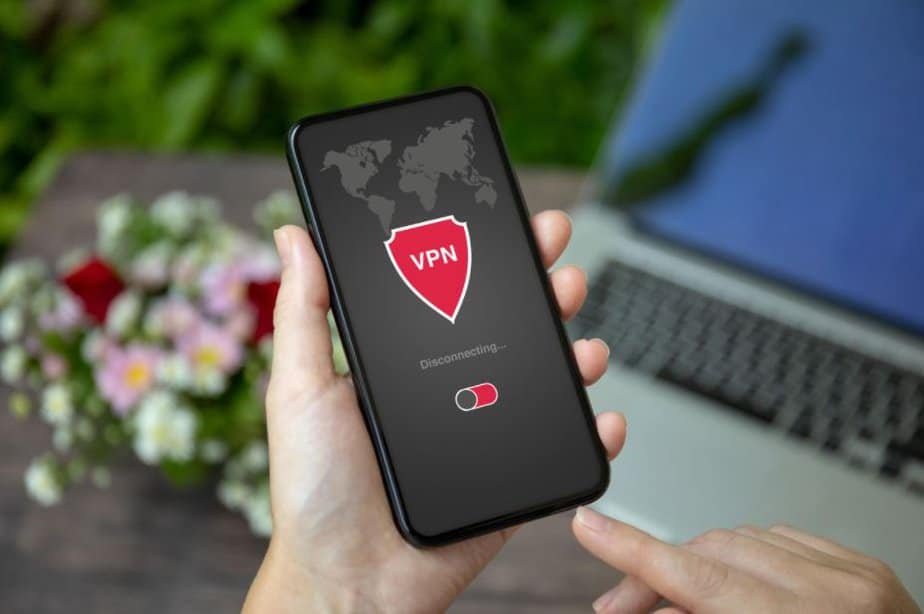Would you like your data traffic on the Internet to be secure and that no-one can access sensitive customer data? Would you like to protect yourself against cyber attacks and at the same time enable your employees to access important data from anywhere? Then you should think about using a VPN. In this article, you will find out exactly what a VPN is, its advantages and disadvantages, and which providers allow you to surf safely.
VPN: Definition
A “Virtual Private Network” (VPN) is a self-contained virtual private network that users can use to communicate anonymously and encrypted data transmission on the Internet. The end devices that users can use to communicate in this closed network are called VPN clients. Whether it is a PC, laptop, smartphone, or tablet – the VPN client is powered by VPN software connected to a VPN server of the respective provider so that a protected VPN connection is created.
Therefore, every user who becomes active via the protected network also receives the IP address of the VPN server so that anonymity is guaranteed. So-called tunnel connections between the participants in a network enable transmitted data to be encrypted and not tracked from outside. As a user, you can always choose from the provider which country the IP address should be assigned.
Is VPN Safe and Legal?
Virtual private networks are secure in that they encrypt or obscure data traffic. It is therefore not possible for third parties from outside to read messages or decrypt them. However, since the data is only encrypted, outsiders could theoretically see via the WLAN, for example, that data was sent, but without recognizing the content. This means that the information is secure, but certain conclusions can still be drawn about the data traffic. But since most of them focus on encryption and anonymity, VPN still offers advantages here.
Since anonymity is often used to disguise illegal data traffic or criminal offenses, many people ask themselves whether VPN is legal at all. In certain countries like China, Russia, and Turkey, using VPN is entirely restricted.
The Best VPN Service Comparison
Whether for online banking, online shopping, streaming, or to protect your online identity – digital security is more important now than ever. Due to the corona pandemic, a large part of our presence is shifting to the internet and is ensuring that we spend a lot more time online.
There are many reasons to use a virtual private network. So that you can now find the best provider for you and your needs, we want to compare the best and largest services for you in a VPN comparison.
1. SURFSHARK
Hardly any VPN provider offers such a good price-performance ratio as Surfshark. Because here you get everything at once: over 3,200 servers in 65 countries, secure connections through your own DNS server, practical ad blockers, fast and unlimited surfing even in repressive countries, and everything in connection with simple operation.
But not only functions such as Kill Switch (protection when the VPN connection is disconnected) and MultiHop (concealment by IP addresses from several countries) distinguish the performance of Surfshark, but also the flexible use on an unlimited number of devices. And the provider shows you that your data traffic is secure and encrypted using the secure VPN protocols.
2. NORDVPN
One of the popular providers is NordVPN. Because this service impresses above all with its many services. With over 5,000 servers in almost 60 countries, NordVPN primarily enables security, high speed, and easy operation. The provider ensures that your data is completely securely encrypted here through data traffic via two VPN servers. In addition, NordVPN, like Surfshark, impresses with its transparency, as the service publishes transparency reports on the website at regular intervals. You can also use the internet via special servers in countries where the internet is heavily regulated.
3. EXPRESSVPN
The provider ExpressVPN can also convince in a VPN comparison. Because here, you can also use the system on all different end devices and operating systems. With locations in over 90 countries and equipped with over 3,000 servers, this provider is one of the most popular.
ExpressVPN also secures your data very well. The service does not log your data and deletes all information after restarting the server. With the option of speed optimization and the split tunneling function, you also have the opportunity to choose the fastest server and specify which data you want to be sent through the VPN tunnel and which you do not.
4. CYBERGHOST VPN
CyberGhost VPN can assert itself in comparison to the competition mainly due to the many locations and special servers. The service has over 6,000 servers in 90 countries and can also quickly and easily overcome country blocks. At the same time, CyberGhost VPN also offers sufficient protection against unwanted advertising, as more and more ad blockers are in use. The service works on trustworthiness with regular transparency reports. It also has a strict no-log policy, which means it doesn’t store or record any data.
5. HIDE.ME
The VPN provider Hide.Me is a good alternative for security fanatics. The service uses numerous virtual private network protocols that encrypt the IP address when you log in. Also, the data traffic processed via our own server enables the best conditions so that the data remains secure. Hide.Me doesn’t have to hide in terms of speed either and can keep up with the top providers. Obfuscation functions for countries where there are more restrictions and special firewalls are intended to offer users more options when using the VPN.
Conclusion: VPN worthwhile, but which provider?
If you want to use the advantages of VPNs, you can do so. You should inform yourself carefully beforehand. Each provider has different functions and features. This, depending on your user needs, is the best. Invest time and attention here to find the best virtual private network for you and your business. Write down your most important criteria, such as speed or server location, and decide accordingly.

